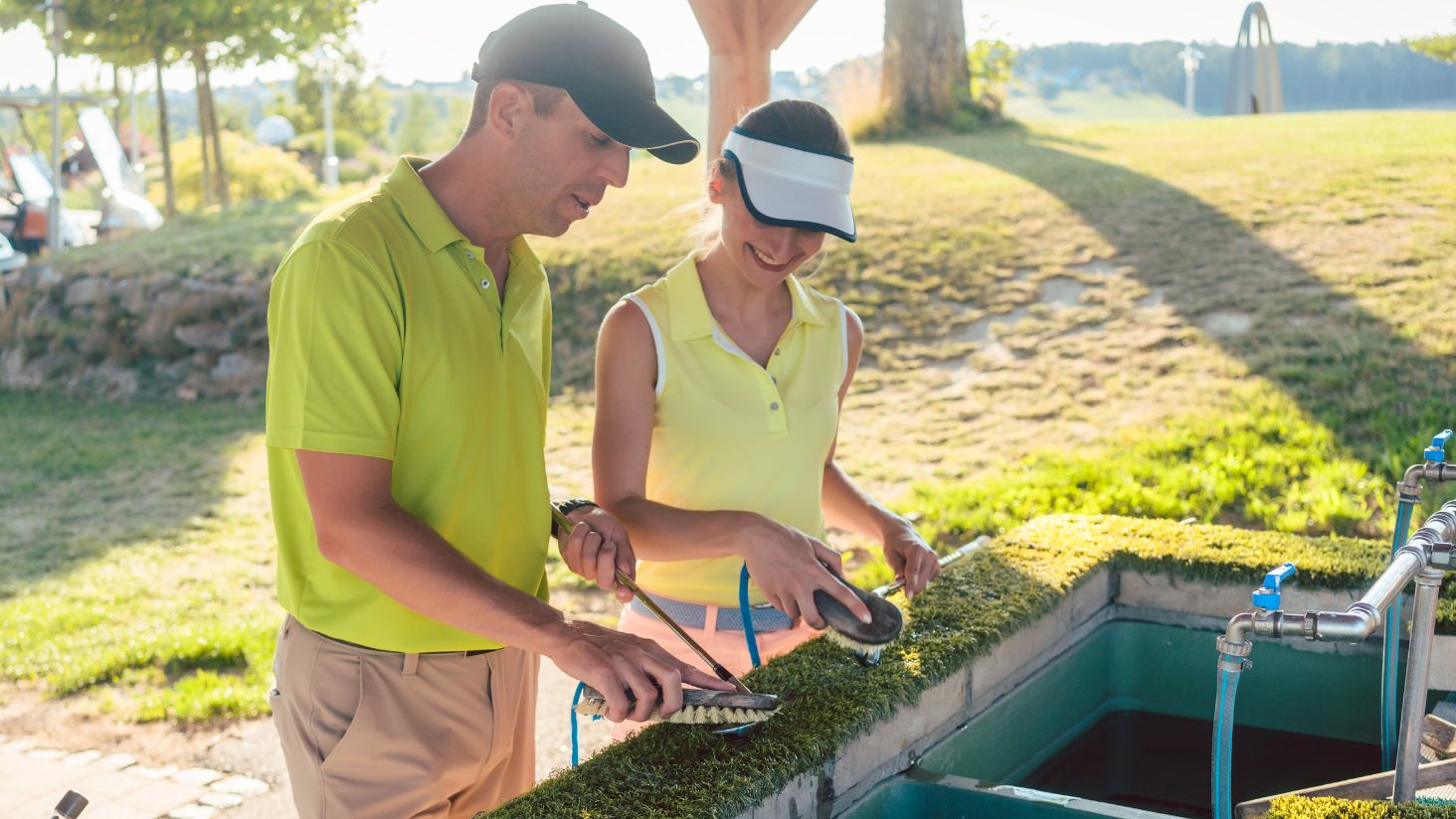


Many benefits for body and mind: this is how healthy golf really is
Golf is healthy. This is not a truism, but scientifically proven. Whether cardio training or rehab sport: golf is a blessing.
Golf is much more than a walk with obstacles, even if Mark Twain saw it differently. It is a sport that offers diverse and often underestimated health benefits for body and mind. Playing golf regularly can not only improve your well-being, but can even extend your life expectancy - by as much as five years if you play golf regularly, according to the German Golf Association.
Golf contributes to your health
Golf is an effective full-body workout that promotes stamina and is easy on the joints. An 18-hole round of golf involves walking around seven to ten kilometers and typically takes four to five hours. This extended exercise in the fresh air is an excellent endurance workout that strengthens your cardiovascular system.
During an 18-hole round, golfers burn an average of around 1,200 to 1,500 kcal. By comparison, a jogger burns around 700 kcal in one hour. Even if you play with a golf cart, you still burn around 50% of the calories. This shows that golf can make a considerable contribution to your energy balance. The golf swing also works almost every muscle group in the body, including the torso, back, shoulders, arms and legs. This promotes muscle development, improves balance and coordination.
Compared to running, golf is a low-risk sport that is easy on the joints as it does not involve high impact loads. The time spent outdoors also promotes vitamin D production and contributes to general well-being.

Mental and social benefits: For body and mind
Golf not only has a positive effect physically, but also mentally and socially. The combination of exercise in nature, concentration on the game and distraction from everyday life has a relaxing effect and reduces stress. Golf strengthens mental well-being. Every shot requires full attention and strategic thinking, which trains your mental fitness and can improve your ability to concentrate in everyday life.
Golf is a sociable game that promotes social contacts and offers the opportunity to meet new people. This counteracts loneliness and strengthens the sense of community. A welcome change, especially in times of increasing individualism.
Golf as a rehab sport: a way back to fitness
Due to its adaptability and low impact, golf is ideal as a rehabilitation sport and for the prevention of chronic illnesses. Golf can speed up the healing process after serious operations (e.g. knee, hip or shoulder replacements) and is beneficial after a stroke as it improves motor skills and coordination.
The sport can be adapted to individual physical abilities like no other. For example, players can use a Trolley or e-cart, focus on the short game or carry fewer clubs. Choosing the right tee box not only increases the enjoyment of the game, but also regulates the strain. This also makes golf suitable for people with disabilities and can have a positive effect on symptoms such as Parkinson's disease.

Golf for all ages
Golf is a sport that can be actively practiced well into old age. The repetitive walking movements over different terrains, the rotational movements in the swing and the need to maintain balance contribute significantly to maintaining and improving mobility, flexibility and balance. These aspects are not only important for senior citizens, but also offer benefits for golfers of all ages in terms of physical fitness in everyday life.
Regular golfing prevents chronic diseases such as diabetes (through blood sugar regulation), cardiovascular disease (through controlled exercise), breast and bowel cancer, depression and dementia.
Important: It is essential to seek medical advice before starting or resuming golf after an injury or health problem. Professional guidance, e.g. from specially trained golf instructors or rehabilitation centers, is also recommended.

Important tips for a healthy game of golf
To make the most of the health benefits and minimize the risks, keep the following points in mind:
- Warm up properly: A short warm-up routine before your round is essential to prevent injury and prepare your muscles for the exertion.
- Hydration: Make sure you drink enough fluids during the round. A fluid loss of just 2 percent of your body weight can significantly reduce your stamina and ability to concentrate.
- Sun protection: As you will be spending a long time outdoors, adequate sun protection (cream, headgear, UV-protective clothing) is essential.
- Suitable equipment and fitting: Make sure you have golf equipment that suits your physical condition. A professional golf club fitting can help to avoid incorrect loads and optimize ergonomics.
AI tools were used to create this article.




Release date
17 Aug 2025
photos
Regular rounds of golf have many health benefits. (Photo: Adobe Stock)




